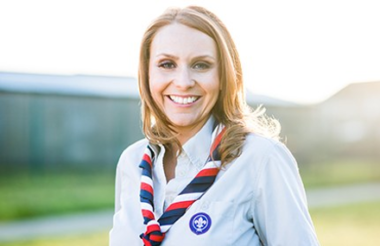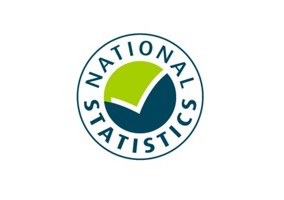Flexible volunteering opportunities are “not just a nice to have” but are now “essential for suvival and continued growth”, one of the Scout Association's top volunteers said last week.
Alex Peace-Gadsby, chief commissioner of England at the Scout Association, was speaking at a seminar held as part of Volunteers Week by NCVO and the Office for National Statistics, at which experts discussed the implications of research about volunteering trends.
She said that “the reality is that society has evolved and people lead busier lives” and the Scout Association is doing more to promote the concept of flexible volunteering, for example by enabling role sharing.
Peace-Gadsby's role is volunteer position, with leadership and management responsibility for the adult volunteers across England.
“We need to work around volunteers, not expect them to work around us,” she said. She advised that it is important to ask potential volunteers what they do to find out out how they best placed to help.
Peace-Gadsby said that making sure volunteering was fun is key to retaining people because “if they stop having fun they leave”.
“What we all need to do is keep volunteering fun and flexible and never something that feels like a burden. As a volunteer manager it is my responsibility to spot when someone is taking on too much.”
Four week challenge
Peace-Gadsby revealed that the Scout Association is piloting a scheme to enable people to try out volunteering for four weeks.
After they have completed four weeks, which don’t have to take place sequentially, participants get a certificate and can decide whether or not they want to continue to be involved on a regular or ad hoc basis.
“An open ended volunteer commitment can feel like a really scary thing,” she explained, and said the early results from the pilots were that it is “going well”.
'Volunteers are active people'
Chris Payne, lead researcher at the ONS, said that when they examined the data from the latest survey it found that “volunteers tend to be quite active people” compared to people who didn’t volunteer, who spent more time in the evenings “watching mass media”, or watching box sets of television programmes.
Matthew Hill, senior research officer at NCVO added that research suggests that “it’s not that people don’t have time, it’s that people choose to do other things with their time”.
He suggested that charities become more flexible to encourage irregular volunteers to give more time. “Our lives have become more irregular”, he said so it is “important for organisations to think about how they can offer flexible opportunities that fit into people’s lives”.
‘We need a culture change’
Kristen Stephenson, volunteering development manager at NCVO, said charities needed to respond by taking a more flexlible and collaborative approach.
She said there were a number of factors which influence whether people do, or don’t, volunteer and a “broader culture change is needed in terms of volunteer management” to make it possible for people to volunteer at different stages of their life and move “pathways to support them on this journey”.
Stephenson highlighted how businesses were reporting that consumers are less loyal to brands and said “we might see similar challenge for volunteering”. And urged charities to “embrace the fact that volunteers may have a more fluid relationship with us”.
She encouraged charities to think about how they could share volunteers and “allow flexible movement across different organisations and enable those giving time to do a bit more”.
She said the sector needs to think differently and “change our mentality a bit” when it comes to the role of volunteer managers.
She said traditionally charities have offered volunteers a “specific role that we define” but that it was increasingly the case that volunteer managers “enable people to give time and talent”.
She suggested that “volunteer managers” could be known as “volunteer enablers” in the future.
‘Sell opportunities better’
Stephenson also urged the sector to think about how it promotes volunteering opportunities.
She said: “The social side of volunteering is really important and sometimes we don’t emphasise that as much as a selling point.”
Social media channels can be a good tool for volunteer recruitment she said as it enables charities and individuals to “share stories“ but cautioned that it was also a “space for people to express views if they’re not happy”.
|
Related articles












